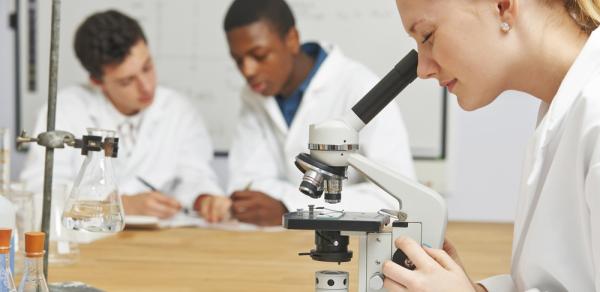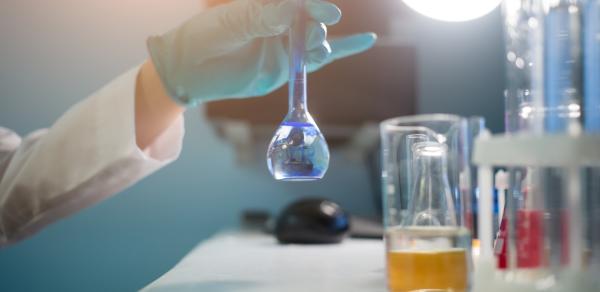CDN infrastructure is composed of:
- Common use laboratories
- Laminar flow hoods for cell culture
- Tissue culture incubators
- Dedicated tissue culture rooms
- Ultra-cold freezers (-80°C), regular freezers
- Ultracentrifuge
- Refrigerated and table top centrifuges
- Animal behavioral laboratories with computerized tracking devices and software for data analysis
- Genetic engineered mouse models for degeneration, autism and other diseases
Vivarium - Lecture Room and offices
- Access to CUNY services and network
High Performance Computing Center
Advanced Imaging Facility
The imaging facility has dedicated laboratories for preparation and imaging of specimens covering many applications including biological science, material science, polymers, chemistry, and quantitative nanoscale measurement.
Leica SP2 AOBS Confocal Microscope
4D scanning confocal of fluorophores
Spectral imaging
Timelapse imaging
3D z-stacks
FRAP/FLIP, FRET
Zeiss Axio Observer Live Cell Imager
CO2 and temperature controlled incubation to support live cell imaging
Blue, green, red, BCECF filter cubes and DIC
Programmable motorized stage for parallel acquisition time course.
Housed in BSL2 tissue culture room
Asylum MFP-3D Atomic Force Microscope
Real-time 3D rendering
Nanolithography/nanomanipulation
Modes: AC, Contact, Phase, EFM, LFM, PFM, Force Mode, Nanolithography
Dual AC™ Mode for dual resonance and harmonic imaging
Stage on Zeiss Axio fluorescence microscope for parallel analysis with acoustic isolation
Fei Tecnai Spirit Transmission Electron Microscope
Line resolution: 0.2 nm
Information limit: < 0.2 nm
High tension (min step): 20-120 kV (continuous 10V)
Energy-dispersive X-ray spectroscopy
Elemental analysis
Available on SEM
Available on TEM
Wavelength-dispersive X-ray spectroscopy
Elemental analysis
Available on SEM
Specimen preparation
Leica RMC Cryo-ultramicrotome for sectioning frozen samples
Leica UCT Ultramicrotome for sectioning embedded samples
Lynx II Tissue Processor for preparing tissues for EM
Leica Med020 High Vacuum Coating System
Cressington Carbon Coating System
Library
The College of Staten Island Library supports the teaching, learning, and research of neuroscience. The library serves the needs of students and faculty providing instruction sessions in all disciplines, across all college levels. They select print and electronic resources that support the curriculum of the center. Currently, the collection includes 69 print and electronic journal titles in neuroscience and the subscription to approximately 60 databases in science. Many of those databases index Biology and related disciplines. The library possess access to over 90 monograph tiles in Neuroscience (CSI), and 450 monograph titles (relating to neuroscience) within CUNY.
Beyond the College of Staten Island
Translational and Clinical Research
Two faculty of CDN are presently working on translational medical projects. Dr. Banerjee is investigating the anticancer properties of Curcumin, a major component of the culinary spice turmeric that displays prophylactic activity against almost all cancers. By chemically linking curcumin to an antibody that targets it to cancer cells, Dr. Banerjee’s team has sharply potentiated its ability to eliminate cancer cells. This project studies ways of achieving such targeting of curcumin into brain tumor as well as skin and cervical cancer cells. He is collaborating with the Staten Island University Hospital where is he participating in clinical research studies.
Dr. Ahmed is interested in developing new treatment strategies to treat spinal cord injury using a combination of spinal cord magnetic stimulation (TMS) with acrobatic form of exercises. This treatment strategy proved to be remarkably effective in improving functional recovery in mouse model and in human patients suffering from spinal cord injury. His studies also include neuromuscular fatigue, axonal plasticity, and injury-induced plasticity in cortical and spinal cord connectivity.
The Institute for Basic Research in Developmental Disabilities (IBR)
The IBR is a combined clinical and basic research facility located near the CSI campus and is a component of the Office for People with Developmental Disabilities. IBR receives funding from the State of New York for Education supporting doctoral education in Neuroscience at CSI. Additionally, collaborative scientific efforts of CSI faculty and IBR senior scientists provide a fertile arena research and student training.

